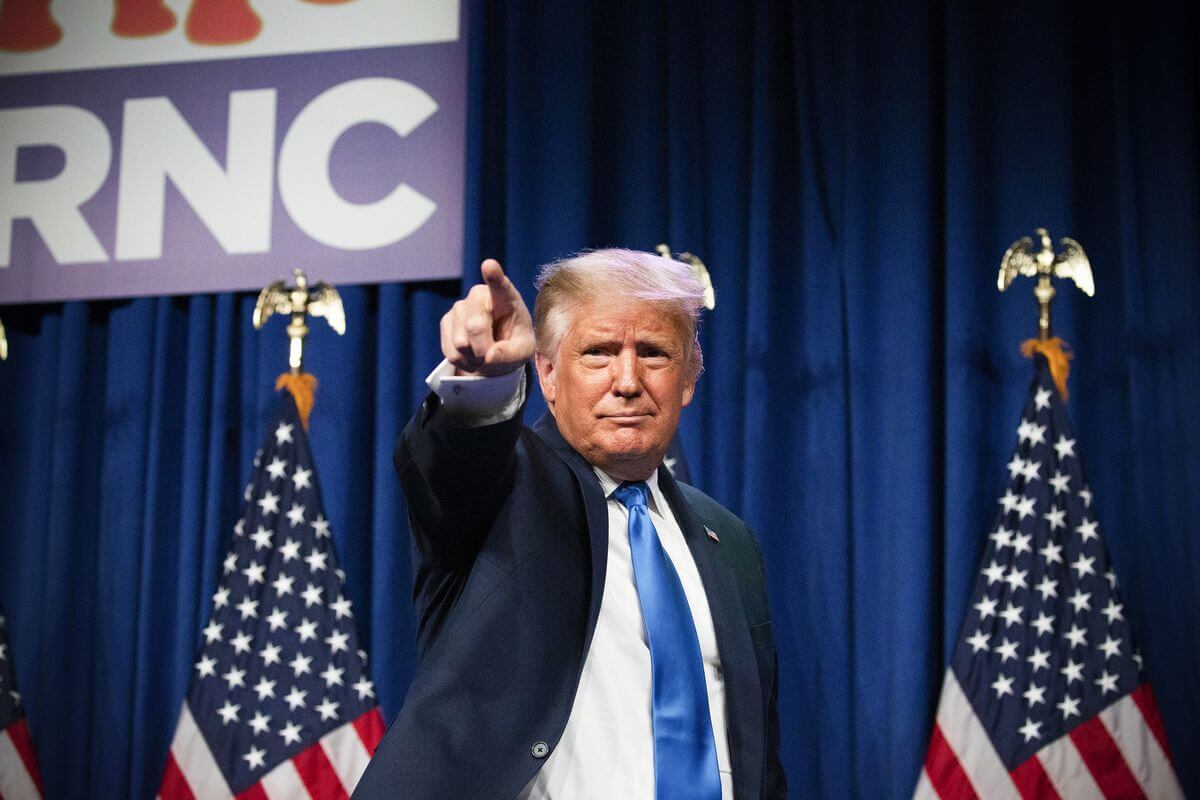The Republican National Convention (RNC) 2020 kicked off yesterday in Charlotte, North Carolina, where the GOP formally nominated Donald Trump for a second term in the White House. Trump made a surprise appearance at the event, focusing his speech on accusing the Democrats of derailing the election through their support for mail-in voting and reassuring his base of the strength of their own numbers.
While hailing November’s vote as “the most important election in our history”, Trump also asserted that the coronavirus pandemic would mean that the poll would also be “the most corrupt election” in US history. Repeatedly referring to the pandemic as “the plague that came from China”, Trump continued to criticize governors for not easing lockdown restrictions, and tied it all to a broader plan by his opponents to “use COVID-19 to defraud the American people” and “steal the election”. He said, “You know these Democrat governors - they love to shut down until after the election is over because they want to make our numbers look as bad as possible for the economy. But our numbers are looking so good.”
Despite Trump’s consistent attacks on mail-in voting, widespread voter fraud has proved to be exceedingly rare. In 2017, the Brennan Center for Justice ranked the risk of ballot fraud at 0.00004% to 0.0009%, based on studies of past elections. Trump also admitted earlier this month that he was opposed to providing additional funding for the United States Postal Service (USPS) in order to make it more difficult to vote by mail. Over the weekend, however, Congress approved to allocate $25 billion to the USPS, and banned any operational changes to the agency that would affect mail service around the country. Nevertheless, Trump continued to condemn the Democrats, saying, “We have to be very, very careful and this time they are trying to do it with the whole post office scam. They will blame it on the post office. You can see them setting it up.”
Meanwhile, on election interference, Reuters reported on Monday that Kremlin-supported organizations are playing a role in amplifying conspiracy theories promoted by QAnon, increasing legitimate fears of meddling in the upcoming US presidential vote. QAnon is a political cult built around an unfounded conspiracy theory that portrays President Donald Trump as the hero in a secret war against elite Satan-worshipping pedophiles in government, business, media, and the so-called “deep state”. Although Russia did not seem to play a part in the initial launch of the movement in 2017, as QAnon took on new topics, several social media accounts tied to the Kremlin reportedly joined in. More recently, Russian government-linked news outlets like RT.com and Sputnik have also stepped up their coverage of the movement, which has now spread to mainstream social media platforms.
Last week, when asked about the group—which has been labeled as a potential domestic terrorism threat by the FBI—Donald Trump said that he did not know much about them, but added that he had heard that it comprised “people who love our country” and that they supported him, which he appreciated. However, White House chief of staff Mark Meadows later said that the White House had no credible information about the group and that it was not a focus of the President’s remarks.
Trump Accepts Republican Nomination, Warns Convention of Rigged Election
He accused his opponents of using the COVID-19 pandemic to "steal the election".
August 25, 2020

SOURCE: VOX
